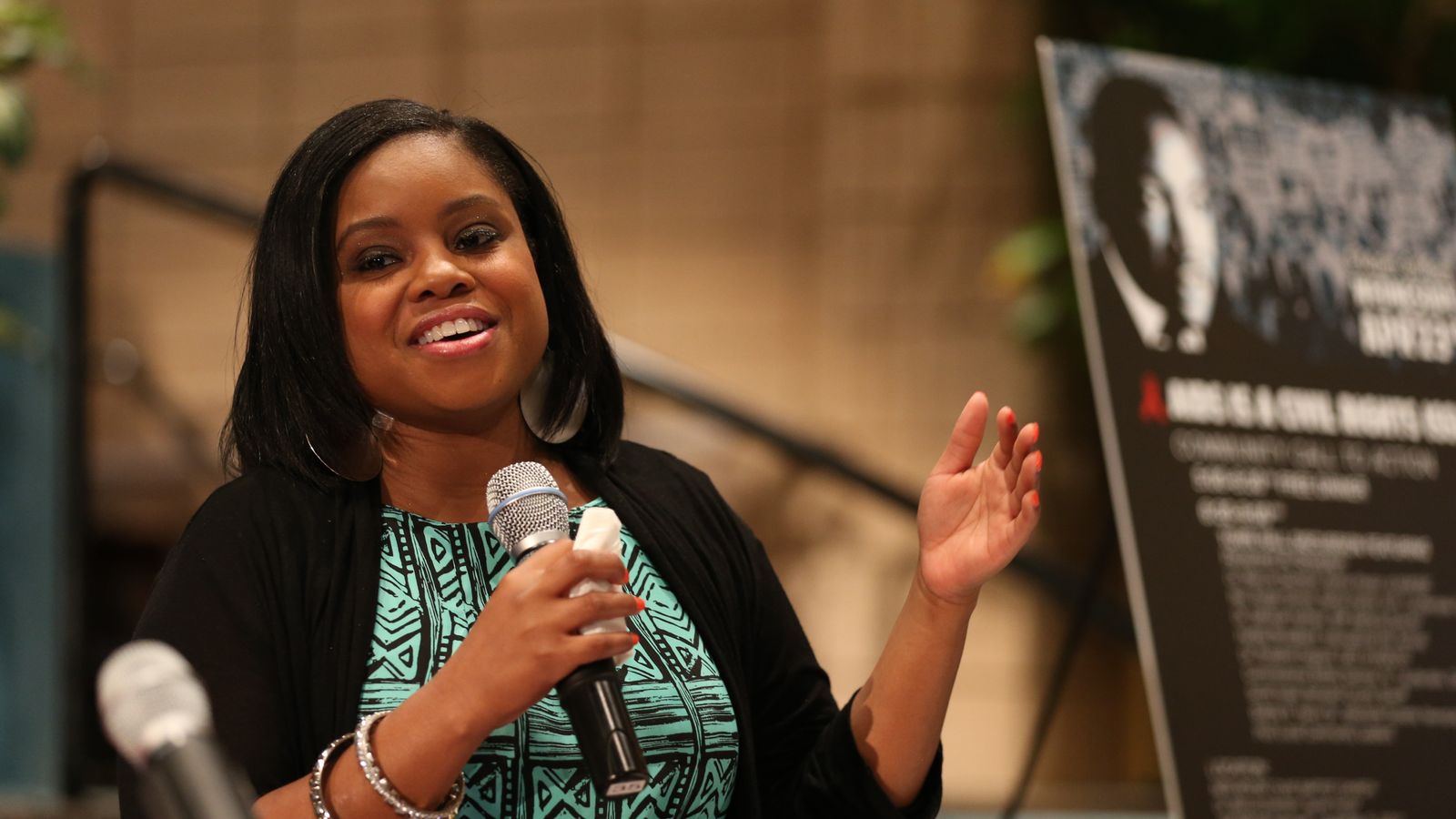Prominent HIV/AIDS activist Hydeia Broadbent has died at the age of 39 after living with the disease since childhood.
Ms Broadbent, who gained media attention for being a part of America’s “first generation of children born HIV positive” in the late 1980s, died on Tuesday, her father said.
She was diagnosed with HIV at the age of three, though she was presumed to have been born with the illness.
“With great sadness, I must inform you all that our beloved friend, mentor and daughter Hydeia, passed away today after living with AIDS since birth,” her father Loren Broadbent wrote on Facebook.
“Despite facing numerous challenges throughout her life, Hydeia remained determined to spread hope and positivity through education around HIV/AIDS,” he added.
Mr Broadbent and his wife Patricia adopted Ms Broadbent after she was abandoned at the University Medical Centre of Southern Nevada in Las Vegas as an infant. They were told she would not live past five years old.
Ms Broadbent began speaking publicly about her diagnosis at the age of just six, as her mother encouraged her to help reduce the stigma surrounding the virus at the time, especially for the sake of children who had been diagnosed with it.
Charities say government ‘must go further’ to eradicate HIV cases by 2030
A ‘new stigma’: How the cost of living crisis is preventing the eradication of new HIV transmissions
Sir Elton John to MPs: Next election winner can help eradicate AIDS by 2030
She became a fixture in HIV/AIDS advocacy before medications became available that could make living with HIV, the virus that causes AIDS, a more manageable chronic illness.
One of her most notable TV appearances came alongside basketball superstar Magic Johnson in 1992 on a Nickelodeon special about HIV and AIDS, shortly after the basketball star announced his own HIV diagnosis.
Aged eight at the time, Ms Broadbent spoke along with other children who had been diagnosed, and sobbed as she said: “I just want people to know that we’re just normal people.”
Johnson, who consoled her, later described the moment as a turning point in his life.
“That very moment was both sad and inspirational,” he said in a CNN interview in 2012.
“It made me want to do more to bring awareness to the disease and educate people so that no one would have to feel the way she did that day,” added Johnson, a billionaire regarded as one of the best NBA players of all time and who has gone on to advocate for a range of causes, including the rights of HIV positive people.
He has said he is “devastated” about her death.
Read more:
Charities say govt ‘must go further’ to eradicate HIV by 2030
Sir Elton John: Next election winner can help eradicate AIDS
In 1996, Ms Broadbent, then 12, addressed the Republican National Convention with a poem, declaring: “I am the future, and I have AIDS. I can do anything I put my mind to. I am the next doctor. I am the next lawyer.
“I am the next Maya Angelou. I might even be the first woman president… you can’t crush my dream. I am the future, and I have AIDS.”
In 2002, she and her mother co-wrote a book about their experience as a family, called You Get Past The Tears: A Memoir Of Love And Survival.
She continued her campaign for the rest of her life, and in 2018, on her 34th birthday, she wrote a blog post on her website celebrating the milestone, revealing she had suffered with depression but managed to “pull myself back up”.






















